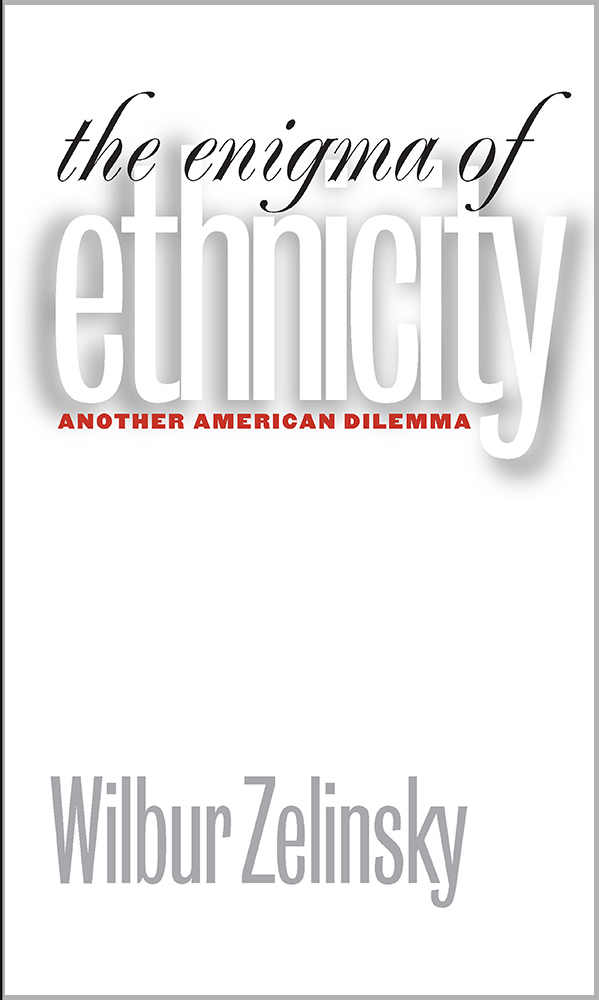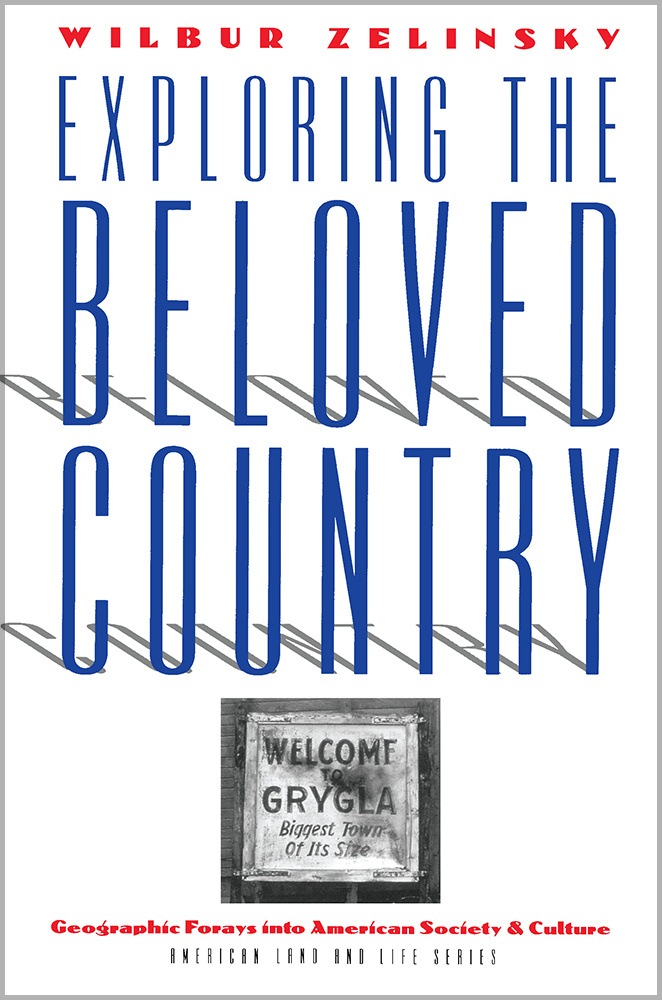In The Enigma of Ethnicity Wilbur Zelinsky draws upon more than half a century of exploring the cultural and social geography of an ever-changing North America to become both biographer and critic of the recent concept of ethnicity. In this ambitious and encyclopedic work, he examines ethnicity's definition, evolution, significance, implications, and entanglements with other phenomena as well as the mysteries of ethnic identity and performance.
Zelinsky begins by examining the ways in which “ethnic groups” and “ethnicity” have been defined; his own definitions then become the basis for the rest of his study. He next focuses on the concepts of heterolocalism—the possibility that an ethnic community can exist without being physically merged—and personal identity—the relatively recent idea that one can concoct one's own identity. In his final chapter, which is also his most provocative, he concentrates on the multifaceted phenomenon of multiculturalism and its relationship to ethnicity. Throughout he includes a close look at African Americans, Hispanics, and Jews as well as such less-studied groups as suburbanized Japanese, Cubans in Washington, Koreans, Lithuanian immigrants in Chicago, Estonians in New Jersey, Danish Americans in Seattle, and Finns.
Reasonable, nonpolemical, and straightforward, Zelinsky's text is invaluable for readers wanting an in-depth overview of the literature on ethnicity in the United States as well as a well-thought-out understanding of the meanings and dynamics of ethnic groups, ethnicity, and multiculturalism.
“Zelinsky’s book successfully explores the landscapes of cultural and social geography in regard to ethnicity…[a]well-grounded and lucidly written book.”—American Studies International
“The best work of one of our very best geographers. It is informed by a powerful empirical imagination, but it is driven by daring intuition and careful analysis. It may well be the most original, disturbing, and heartening meditation ever written on our multicultural condition.”—Michael Zuckerman, professor of history, University of Pennsylvania
“This is a splendid, provacative, and insightful book that makes an important contribution to mainstreams of modern thought that help our nation understand itself. Besides its value to the lay worlds of ideas and political discourse, it should provoke bright freshmen as well as graduate students in courses on urban, cultural, or historical geography of the U.S. It is clearly written, mercifully free of cant and jargon, and well edited, and it moves at a brisk pace, with vivid language and an economy of expression."—John S. Adams, The Annals of the Association of American Geographers
“The Enigma of Ethnicity is a significant contribution to cultural, social, and historical geography, and the emerging subfield of ethnic geography in particular…The book offers an encyclopedic look at ethnicity and ethnic communities in North America including African Americans, Hispanics, and Jews as well as such lesser studied groups as Iranians, Koreans, Estonians, Finns, Vietnamese, and the Hmong…a must read for students of ethnicity.”—Historical Geography



